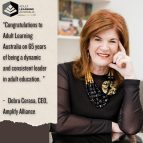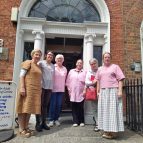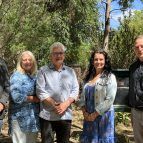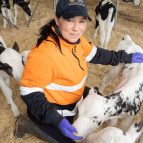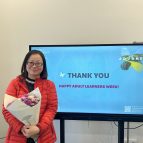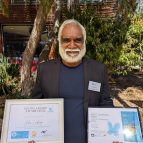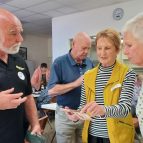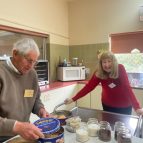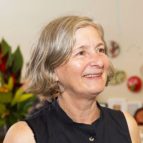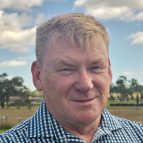A lifelong commitment to adult education
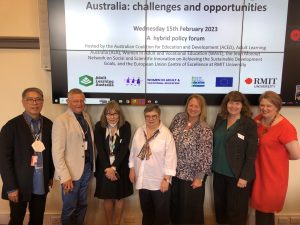
Elaine Butler has been working in and advocating for the adult and community education sector for more than four decades. So, she has seen an enormous amount of change in that time. And while she says there have been a lot of ups and downs, she remains buoyed about the future of the sector.
‘There are so many really good things happening across the sector now,’ she said. ‘There are also new programs being co-designed and place-based, and that is exciting.’
Elaine is also optimistic about the current Australian Government’s willingness to listen to people advocating for adult and community education – and hopes this will lead to more funding and a national lifelong learning strategy.
Elaine didn’t start her working life in the sector, but her earliest working experiences shaped her interest and commitment to developing educational opportunities, particularly for women.
After finishing school in Adelaide in the 1960s, Elaine began work in accounting, and later, stockbroking offices. And while she enjoyed the excitement of being in the finance sector at a time of huge Australian and international economic growth, the lack of additional training or career pathways for women chafed.
With the Whitlam Government providing new access to university, Elaine left full-time employment to study. She planned to work out how best to enhance the economic well-being and social status of women through education.
After graduating, Elaine took up her first role in the TAFE sector, which included working to develop new certificate courses, programs for marginalised groups, and opportunities for young people. It was this experience of working directly with people from low socio-economic backgrounds to develop the courses they said they needed that left Elaine with a lifelong commitment to community education.
‘We asked these people what they needed, what it would take for them to join in classes. In particular, South Australia’s Dunstan Government had set up an amazing centre (the Parks Community Centre) that, along with a secondary school and TAFE, provided everything that the surrounding community needed from services to recreation,’ she said.
Participants were from across the spectrum – recently arrived refugees from Vietnam, First Nations people, women domestic violence survivors, young people unemployed, and/or on remand. ‘We had women who didn’t usually leave their homes attending cooking classes as that was an acceptable, if covert way, to teach them about women’s health along with functional English language skills.’
Elaine said she experienced a ‘huge chunk of learning’ herself during this time, particularly the benefits of setting up educational opportunities ‘from the grassroots up, on demand’ and in partnership with local councils and health and welfare organisations. ‘It was education in a totally holistic fashion.’
After a stint working in teacher education in PNG and the Solomon Islands – which included being part of setting up the first scholarships for local graduate women to study and gain higher qualifications in education overseas – Elaine returned to Australia to work in universities. At that time, there was a real focus on adult and community education and vocational training.
However, shortly afterwards, the Government began to shift towards adult education almost exclusively focusing on employment and skills development. Industries were given the capacity to drive the development of the post-school sector rather than ACE providers.
`With the transformation and growth of the vocational education and training system from state based to a national system and emphasis on training, what became the ‘fourth sector’, adult and community education, moved into a paper-thin existence. There was verbal acknowledgement of the need for such opportunities, but not the required funding or policy framework to support it.’
Until then, Australian education revolved around compulsory (school-based) education, further education (TAFE/VET and community education), and higher education (universities). While firmly committed to the grassroots approach, Elaine has also focused across her career on the academic underpinning of the sector, ensuring there is evidence to support its equitable, vibrant, and effective operation.
She has authored and co-authored many significant studies, including A fair go for all? Equity frameworks and landmark documents in Australian vocational education and training and Don’t be too polite girls! Women, work and vocational education and training. Elaine has also been involved – and remains so – in global adult education and training, with a particular focus on the UN’s Sustainable Development Goals (SDGs).
While frustrated that SDG4, ‘Ensure inclusive and equitable quality education and promote lifelong learning opportunities for all,’ does not include more focus on adult and community education, Elaine believes that the SDGs have moved the sector forward, including through increased access to data and information.
Elaine says she is pleased when Australia signs up for international agreements and programs but often feels the need to ‘remind them of the actual situation in Australia’. This includes Australia not yet embracing the UN’s call for national governments to formally recognise a ‘universal entitlement to lifelong learning and reskilling, translated into practice through legislation, policy, and effective lifelong learning systems’ (Our Common Agenda, UN 2021).
As a long-time ambassador for Women in Adult and Vocational Education (WAVE), Elaine is a member of the Australian Coalition for Education and Development (ACED). This coalition brings together Australian non- government organisations – such as ALA – that work on education in global development with a particular focus on education for all.
After a national forum in February 2023 to discuss Transforming Education and Training Systems in Australia, Coalition members called on the Australian Government to create a national lifelong learning policy and a national adult literacy strategy with targets and timelines.
Elaine remains committed to working to enshrine access and equity to lifelong learning for a long time to come. ‘Adult and community education is where my heart is, and I have never regretted getting involved with the sector. It has been a privilege, as well as an ongoing rich learning experience. I have been very lucky.’

